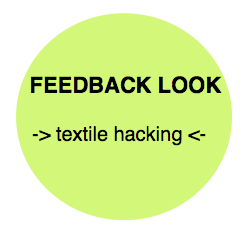El 16 de marzo tuvimos la oportunidad de participar en el 6º seminario de Empiria Digital, la serie de encuentros que coordina Adolfo Estalella en Medialab-Prado. en esta ocasión el tema era "Blogs académicos: otros tiempos para la ciencia", y además Frederique Muscinesi presentó la plataforma es.hypotheses.org. Sin duda es un posicionamiento sólo el hecho de invitarnos a esta mesa, pero fue divertido :-)
+ info: http://medialab-prado.es/article/eshypothesesorg
Learning Through Digital Media Experiments in Technology and Pedagogy
Posted by -orama on 21 de febrero de 2012 · Leave a Comment
Learning Through Digital Media + info: http://learningthroughdigitalmedia.net/
Invisible Learning (-> hacia una nueva ecología de la educación)
Posted by -orama on 23 de noviembre de 2011 · Leave a Comment
"The proposed invisible learning concept is the result of several years of research and work to integrate diverse perspectives on a new paradigm of learning and human capital development that is especially relevant in the context of the 21st century. This view takes into account the impact of technological advances and changes in formal, non-formal, and informal education, in addition to the 'fuzzy' metaspaces in between. Within this approach, we explore a panorama of options for future development of education that is relevant today. Invisible Learning does not propose a theory, but rather establishes a metatheory capable of integrating different ideas and perspectives. This has been described as a protoparadigm, which is still in the 'beta' stage of construction."
+ Info: www.invisiblelearning.com
Filed under aprendizaje, digital_culture, learning, non-formal learning
Video de IgniteNYC en el que el artista e investigador cultural @zachlieberman explica la aplicación de la metodología DIWO en el desarrollo de proyectos creativos.
Filed under arte, collective_intelligence, digital_culture, diwo, DIY, masterDIWO, metodología, Zach_Lieberman
Roundhouse Journal: Reimagining the University (2011)
Posted by -orama on 24 de mayo de 2011 · Leave a Comment
“The University’s future is uncertain; uncertain because we – editors, contributors, readers – intend to change its structure, practices and relationship to society. Left to the government, market, bureaucracy and hopeless academics, its future is certain: fueling the free market – a slave shoveling coal aboard a Titanic no government can steer. Our call to re-imagine the university was not an invitation to rearrange the deck furniture or write the score for the string-quartet as the ship sinks. Rather, it was a call to loot the vessel and abandon ship to whichever destinations contributors thought best or, for now, reachable.
There is a thematic narrative to the structure of this journal: Situation – where we are, Source – why we are here, Strategy – where we could go. Contributions were diverse: from personal anecdotes to poetry to practicable plans for parallel institutions and practices. Reassuringly some of these projects are already being implemented.” (from editorial)
Roundhouse Journal
Editors: Evan Harris, Tom Jeffries, Dora Meade, Henry Palmer, Andrew Walker
Concept from The Really Open University
Published in May 2011
76 pages
Licensed under Creative Commons Attribution-NonCommercial-NoDerivs CC BY-NC-ND license
Filed under digital_culture, Educación, education, Universidad







